The Station: The startups edition
The Station is a weekly newsletter dedicated to all things transportation. Sign up here - just click The Station - to receive it every Saturday in your inbox.
Hello and welcome back to The Station, a newsletter dedicated to all the present and future ways people and packages move from Point A to Point B. I'm your host Kirsten Korosec, senior transportation reporter at TechCrunch.
For all the U.S. readers here, I hope you are enjoying the holiday weekend.
I am mixing up the format this week because I am in charge here, it's a holiday and I don't want this newsletter to get too formulaic. So today, the newsletter will highlight a few mobility startups as well as some of their ideas that don't typically get a lot of attention.

Image Credits: RVshare
For those who plan to road trip this summer - or perhaps you already have - I would love to hear what it's like out there. Figures from peer-to-peer RV rental marketplace RVshare suggest it's crowded.
Folks over at RVshare, a peer-to-peer RV rental marketplace, told me that rental bookings are three times higher than last summer and report a 1,600% increase since early April.
July 4th weekend is on pace to be the biggest booking period in the history of the business, by a wide margin," CEO Jon Gray said.
Remember please reach out and email me at kirsten.korosec@techcrunch.com to share thoughts, criticisms, offer up opinions or tips. You can also send a direct message to me at Twitter - @kirstenkorosec.
Alrighty then, vamos.
Bikes!The COVID-19 pandemic has crushed startups and established companies alike. Others, like Lectric eBikes have had a more fortuitous couple of quarters thanks to spiking demand for bikes during the pandemic.
The one-year-old startup based in Arizona has been swept up in the electric bike craze. The company, co-founded by 24-year-olds Levi Conlow and Robby Deziel, has generated more than $14 million in sales of its Lectric XP ebike.
Now the startup is launching a new ebike called the Lectric XP Step-Thru'. Pre-orders began last week. The $899 step-thru bike folds to less than half of its size, has a top speed of 28 miles per hour, an LCD display and a 25- to 50-mile range.
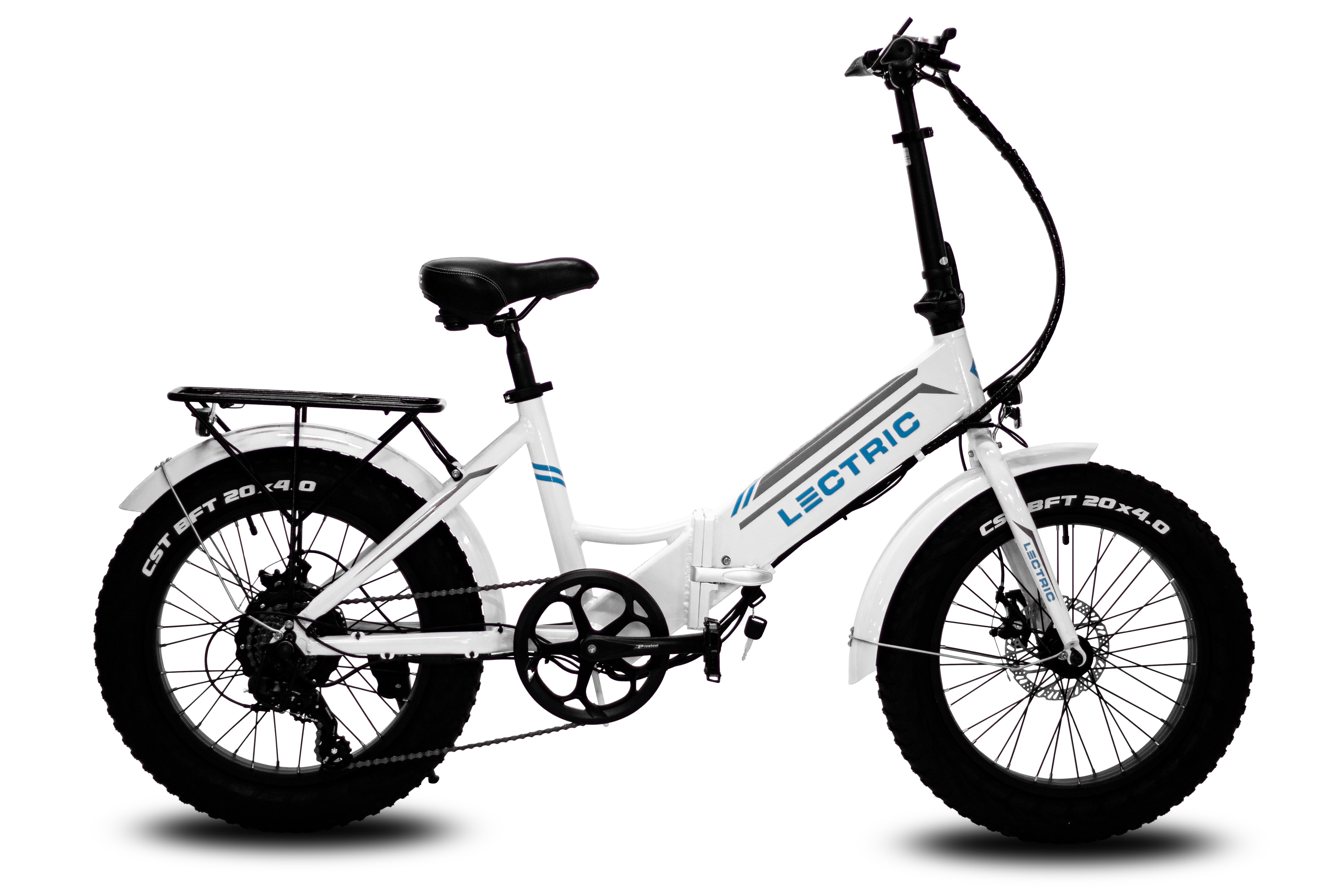
Image Credits: Lectric eBikes
Meanwhile, the better-known Rad Power Bikes has unveiled a single-speed electric bike that starts at $999. The new product, called RadMission Electric Motor Bike, comes with a 500-watt motor that provides 50 pound feet of torque, a twist grip throttle, an integrated brake light that is powered using the main battery pack, 48-volt battery pack that can travel between 25 to 45-mile range.
It's under 50 pounds, making it 30% lighter than Rad Power's other bikes. The bike also comes with an LED control panel where riders can control lights and pedal assistance as well as view battery and assist levels. Pre-orders are open and the company says the first Rad Mission bikes will be delivered in October.
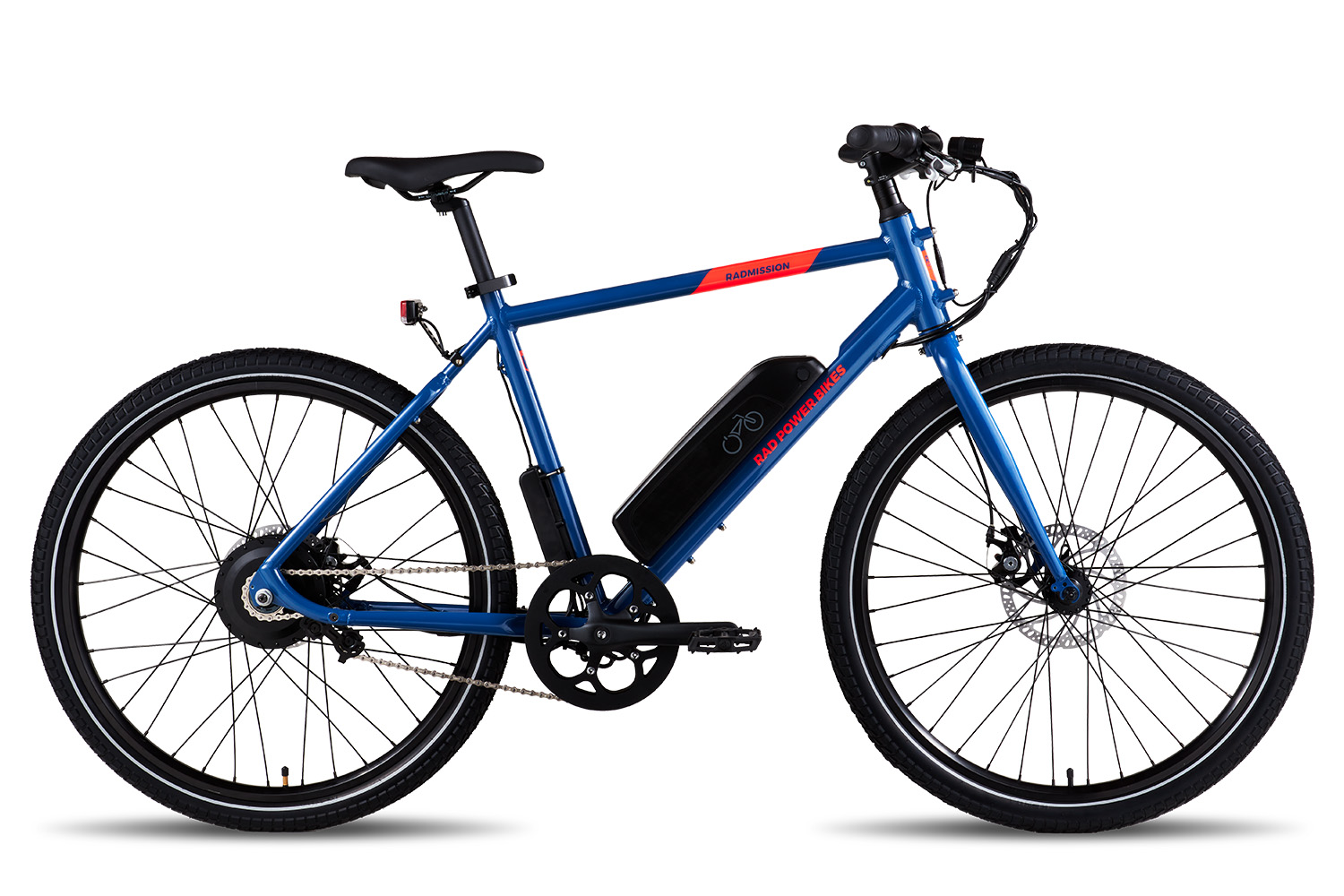
Image Credits: Rad Power Bikes
Zoov, a French electric bike-sharing platform, unveiled this week a new charging station that it says improves upon traditional docking systems. The station is designed to fit four bikes within one meter compared to other systems that can only fit one bike in the same amount of space. It can also charge bikes with or without a connection to the grid. The stations that are not tied to the grid use batteries that can be swapped out and can and be set up quickly, the company says.
One of the more interesting innovations is that the bikes create a shared power connection. As bikes are parked at the station they become connected and can deliver or receive power. The transfer of energy between the bikes is controlled by an algorithm that optimizes the bikes' charge levels - the maximum charge range is about 45 kilometers.
Each station has the capacity for up to 15 bikes. The company said it has already installed 40 of these stations.
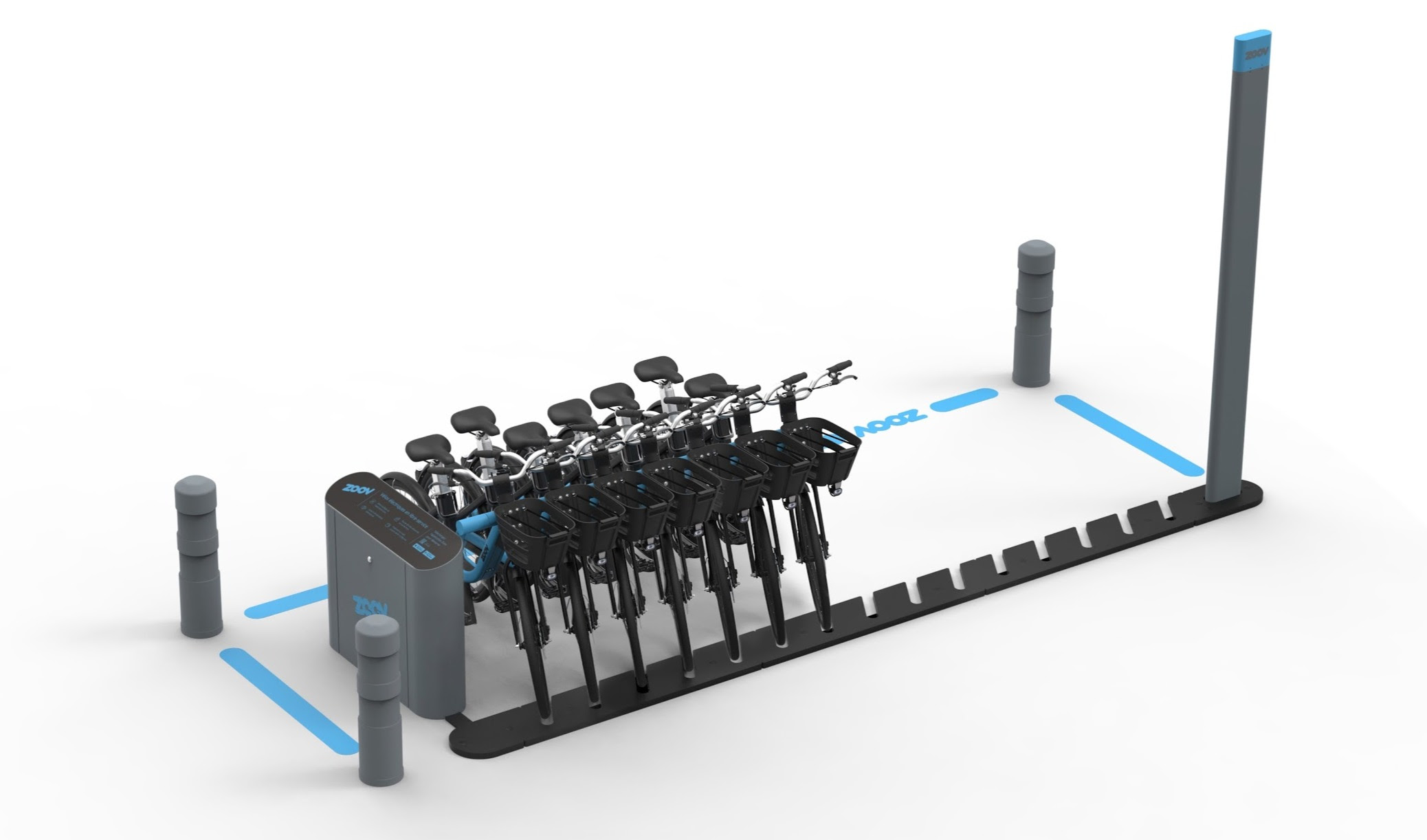
Image Credits: Zoov
COVID-19 inspiredI've been tracking the ideas and little inventions that have popped up in the past several months amid the COVID-19 pandemic. There are an abundance of little solutions" out there, some better than others. I'll call these out from time to time.
For instance, Nickelytics, a startup out of the latest TechStars Mobility cohort, has put a slightly modern spin on the old game of advertising on and in vehicles. The company puts ads on ride-share vehicles that travel at least 30 miles a day. It promises drivers can earn up to $500 a month. The startup's pitch to companies is that it uses tracking technology to log each impression," meaning the passenger who hailed a ride. It takes that data and targets those consumers with digital ads.
The company has launched a new product that it calls ad shield." The idea is to protect ride-share drivers and passengers, while generating revenue. This isn't a new idea. Anyone who has been in a taxicab in a dense urban area has certainly encountered the more permanent and robust shields set up between the front and back seats as a safety measure.
The Nickelytics ad shield is designed for ride-share, however. The plexiglass, which can be branded with a company logo or other marketing message, is flexible and can be quickly added or removed from a ride share vehicle.
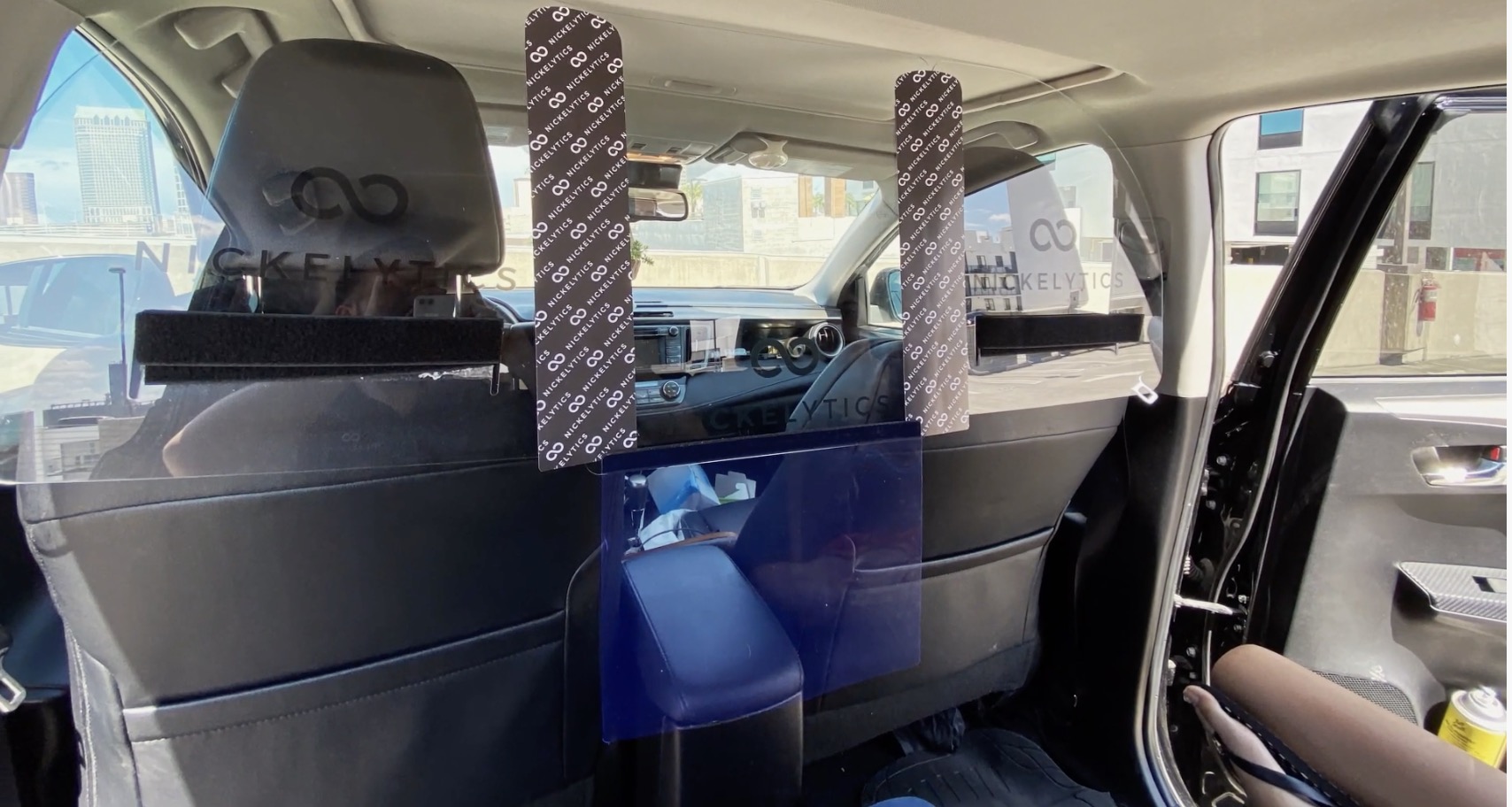
Image Credits: Nickelytics
Apps!A couple of transportation-related apps that are focused on safety caught my eye recently. The first is a company called !important that launched their safety app last month. The app markets itself as protection for pedestrians, bicyclists, wheelchair users, and motorcyclists from collisions with nearby connected vehicles.
Here's the basic premise, which the app's inventor Bastien Beauchamp, explained to me recently: the app runs in the background and acts as another sensor that will communicate with a nearby connected car" to provide the exact location of a pedestrian or cyclist. The driver receives an alert of the approaching person. The app may even trigger the vehicle's brakes automatically. There are a couple of catches here. The vehicle has to have an advanced driver assistance systems and the accompanying !important software for it to work. And for this to be really meaningful, Beauchamp will have to convince automakers to integrate the software into their vehicles as well as get pedestrians, cyclists and other folks to download the app.
It's early days for !important. But Beauchamp has already made some progress. The app will be implemented starting in January 2021 in human-driven and autonomous vehicles in Reno as part of the Intelligent Mobility initiative in collaboration with the Nevada Center for Applied Research at the University of Nevada.
!Important is also in collaboration with 12 universities
Now let's turn to the drivers. Openroad is a free app, which launched in January 2020. that detects car crashes and sends emergency responders if they're needed. The app is only available on iOS and is coming to Android soon.
The app grew out of True Motion, a company founded in 2012 that developed a smartphone telematics platform for insurance companies. Insurance companies can use the platform to capture driving data and then offer their customers incentives for good driving behavior.
Open Road was designed as a consumer app. The app uses machine learning to detect crashes in real time and will reach out to trained responders who can send a 911 call for ambulance or police if that is needed. The data can also be used to speed up the insurance claims process for the user.
Open Road recently added an emergency contacts feature that'll notify a couple of designated people in the event of a crash as well as a Siri Shortcut. If a user says Hey Siri, Request Crash Assistance" one of the Open Road trained agents will call the user immediately. The app also audio alert feature where if the user is in a crash, audio alert is triggered from their phone to let them know agents are calling.
Holiday roundupNormally, I would break each of these out into different sections and provide some analysis and even original reporting. This week, I'm providing a mini version of my typical newsletter. Keep on reading for an overview of what happened this past week.
Micromobbin'The big micromobility news this week comes from the UK, where the Department for Transport announced that it allow e-scooter rental companies to legally operate across the country. This will be a pilot program that will start no later than August. Councils and other authorities, including across London and other major cities, are working on putting together trials that could run for as long as 12 months under guidelines provided by the government.
The regulations come into force on July 4, the DfT said, with the first trials expected to begin a week later.
European micromobility company Dott reached out to let me know that it has earned approval from UK regulators to participate in the e-scooter trial. Tier Mobility is also prepped and ready. The two-year-old startup has more than 1,000 scooters in its UK warehouse. It has also hired a general manager for the UK and a head of public policy for Northern Europe. Fred Jones is the general manager for the UK and Benjamin Bell will lead public policy for Northern Europe. Both Jones and Bell formerly worked at Uber . Jones will oversee the roll-out of TIER e-scooters in UK towns and cities. While, Bell will spearhead the company's collaboration with central and local government in the run-up to trials.
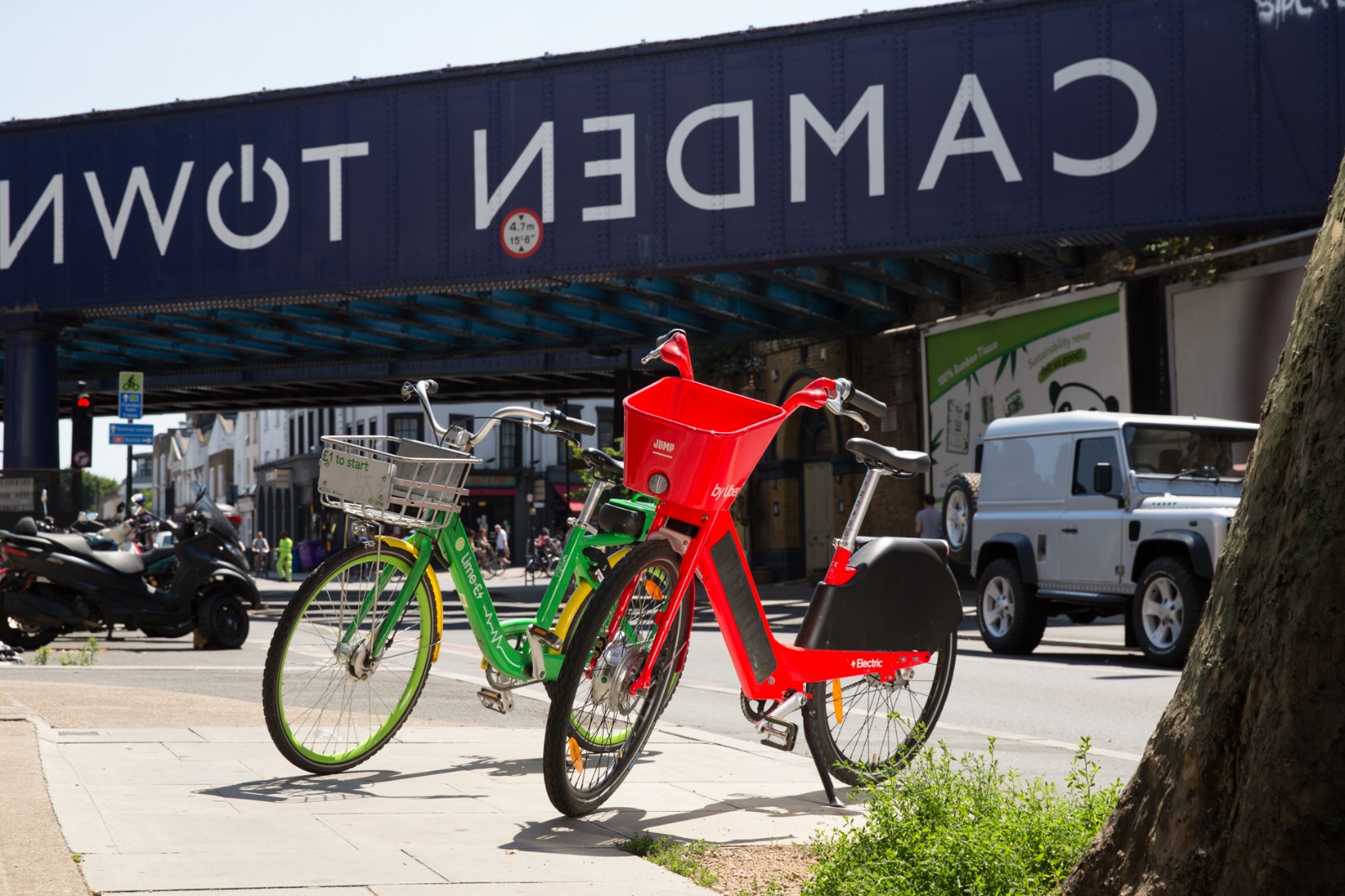
Image Credits: Lime
Meanwhile, Jump bikes returned to London through its new owner Lime. London is the first city in Europe to see Jump bikes return since Uber offloaded the company to Lime in a complex deal that unfolded in May. Lime raised $170 million in a funding round led by Uber, along with other existing investors Alphabet, Bain Capital Ventures and GV. As part of the deal, Lime acquired Jump, the electric bike and scooter division that Uber acquired in 2018 for around $200 million.
Earlier this year, thousands of Jump bikes were pulled off the streets in European cities such as Berlin, Brussels, Lisbon, London, Madrid, Malaga, Munich, Paris, Rome and Rotterdam. It's unlikely that Lime will put Jump bikes back in all of these cities. Sources have said Lime plans to redeploy Jump scooters and bikes in London, Paris, Rome and Barcelona.
AVs and connectivityBMW showed off what its new Operating System 7 software can do. Some of its ideas around deploying upgrades and features has been a bit controversial. The company said all cars equipped with its newest Operating System 7" software will be able to receive over-the air updates and plans to charge customers who want to upgrade certain features like adding heated seats or advanced driver assistance systems.
Lyft's self-driving vehicle division has restarted testing on public roads in California, several months after pausing operations amid the COVID-19 pandemic. Some of its autonomous vehicles are back on the road in Palo Alto and at its closed test track. The company has not resumed a pilot program that provided rides to Lyft employees in Palo Alto.
TuSimple laid out a plan to create a mapped network of shipping routes and terminals designed for autonomous trucking operations that will extend across the United States by 2024. UPS, which owns a minority stake in TuSimple, carrier U.S. Xpress, Penske Truck Leasing and Berkshire Hathaway's grocery and food service supply chain company McLane Inc. are the inaugural partners in this so-called autonomous freight network (AFN).
Velodyne Lidar, the leading supplier of a sensor widely considered critical to the commercial deployment of autonomous vehicles, struck a deal to merge with special-purpose acquisition company Graf Industrial Corp., with a market value of $1.8 billion. Yup, another SPAC!
It's electricDaimler deepened a strategic partnership with Chinese battery cell manufacturer Farasis Energy, a deal that includes taking an equity stake of about 3%. Daimler Greater China will investing a multi-million euro amount as part of Farasis' IPO, as part of the agreement.
EV startups in China haven't fared so well, Automotive News reported. In June alone, at least three startups ceased operations, including Bordrin and Byton.
Lucid Motors announced that its upcoming the Air vehicle will boast a drag coefficient of 0.21, which measures the resistance of an object moving through a fluid environment, CNET's Roadshow reported.
Rivian released a few photos of its electric truck. I put this question to the Twitterverse: what color is this? What do you think? I think the best answer might have been Werther's Original.
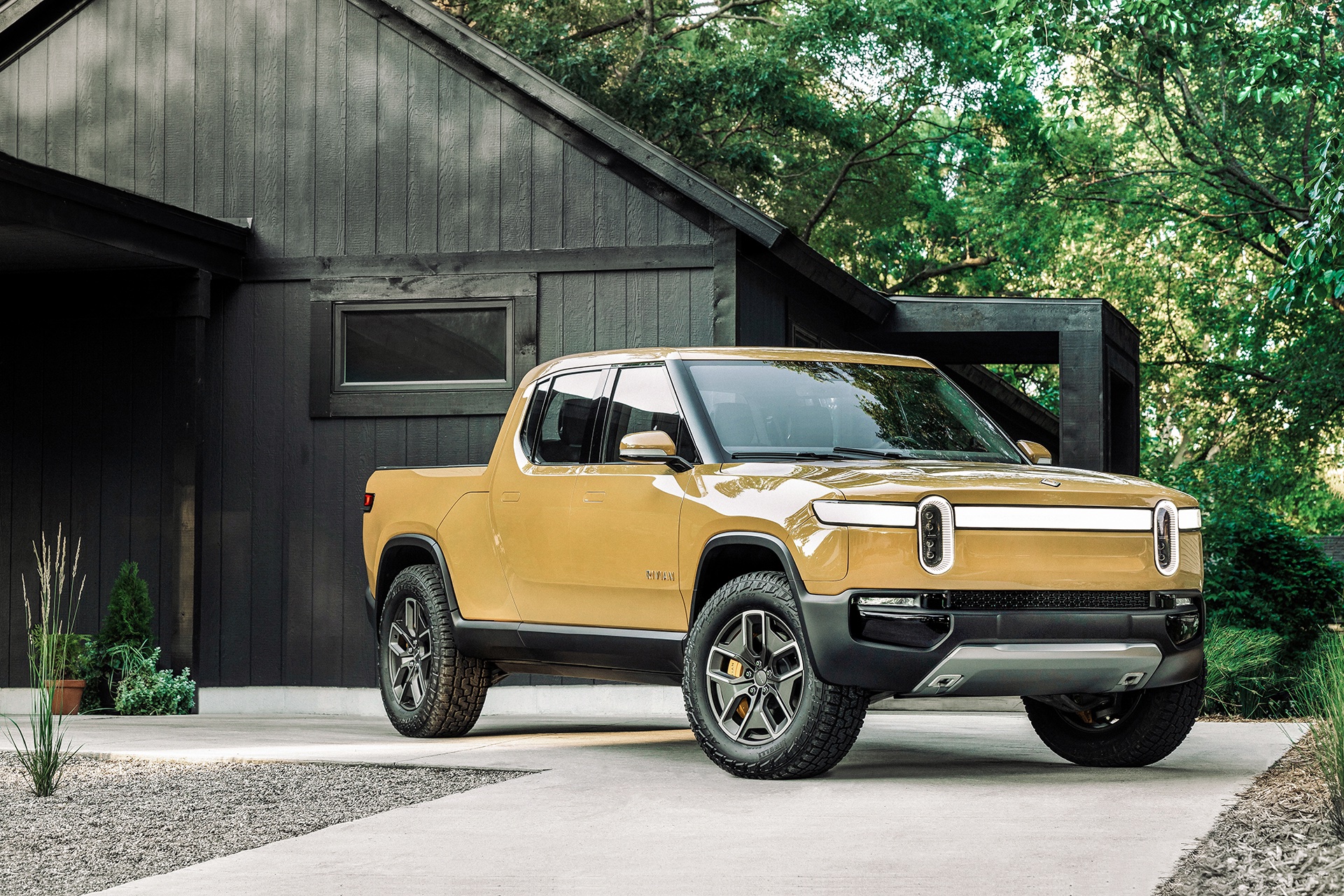
Image Credits: Rivian
Tesla has opened up reservations for its all-electric Cybertruck to customers in China, a move that will test the market's appetite for a massive, futuristic truck. The Cybertruck, which was unveiled in November at the Tesla Design Center in Hawthorne, Calif., isn't expected to go into production until late 2022. But that hasn't stopped thousands of U.S. consumers to plunk down a $100 refundable deposit for the truck. Now, Tesla is testing potential interest among Chinese consumers.
Tesla also reported its delivery and production numbers for the second quarter. Tesla delivered 90,650 vehicles in the second quarter, a 4.8% decline from the same period last year prompted by challenges caused by the COVID-19 pandemic that included suspending production for weeks at its main U.S. factory. Tesla still managed to beat expectations despite the headwinds.
Chinese EV manufacturer Xpeng Motors has started nationwide delivery of its P7 electric sports sedan to customers. The automaker received its official production license May 19 from China's Ministry of Industry and Information Technology for its new factory, the Zhaoqing Xpeng Motors Intelligent Industrial Park, in Xpeng's home Guangdong Province. Production of the P7 at Xpeng's Zhaoqing plant has an annual capacity of 100,000 units.
Miscellaneous
Daimler is looking to sell its Smart car assembly plant in Hambach, France as part of a broad restructuring plan aimed at shoring up the company's finances amid dampening demand caused by the COVID-19 pandemic. The sale will cause negative one-time effect of about 500 million euros ($562 million) in the second quarter.
Jaguar Land Rover set up a subscription service called Pivotal, which is backed by the automaker's venture capital and mobility services arm called InMotion. The subscription will give customers access to Jaguar and Land Rover models, including the All-electric Jaguar I-PACE and the latest plug-in hybrids Range Rover Evoque and Land Rover Discovery Sport.
Lincoln will end production of Continental at the end of the year.
Lincoln is investing in growth segments and the brand will feature a full portfolio of SUVs, including a fully electric vehicle in the future," the company said in a statement emailed to TechCrunch. Lincoln will continue to keep its newest SUVs fresh and we will have more news to share later this year; however, as the full-size premium sedan segment continues to decline in the U.S., we plan to end production of the Lincoln Continental at the end of this year."
To meet the needs of Chinese luxury customers, Lincoln China will offer a 2021 model year Continental next year, the company said.
Uber reportedly made an offer to buy food delivery service Postmates, reported The New York Times. Just a day after that news broke, other reports claimed that Postmates was reviving its IPO plans and possibly looking to go public with the help of a special purpose acquisition vehicle known as a SPAC.
For Postmates, a company caught somewhere between DoorDash's cash-fueled rise and Uber's ability to lose hundreds of millions on its Uber Eats delivery service every quarter, multiple options are likely welcome. Alex Wilhelm digs in.


